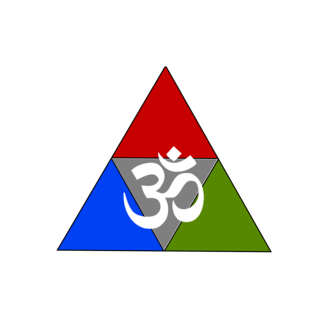a subcreator's field notes, 5 - The Fourth, the Fall, and Fred
Let me state openly that my mind is not as sharp today as I might like; my head hurts, and my heart hurts, and some days are just like this. Before faith, a day like this might have thrown me into despair. As it is, I'm at peace with not being at peace. But I had in mind to begin sketching something a bit difficult, and the challenge may do me good, and it may make both of our heads spin, but that's fine too.
First, by "the Fourth" I don't mean the holiday, but am referring to the literal definition of turiya. The Fall needs no introduction, but Fred does.
I've been reading Damon Knight's excellent Creating Short Fiction. Or I was last week, anyway. Knight frames the writing process as a kind of give and take between the writer's conscious, logical mind and "Fred," the unconscious (or as Knight prefers to call it, the "silent" or "tongue-tied") mind.
There's definitely something to this. As an insight into the writing process it's quite useful, because we want to keep Fred happy, by keeping our promises to him and using his ideas, somehow, some of the time. But I'm also intrigued by Fred — in the abstract — from an anthropological standpoint. Or better, to crib a term from the theologian Raimon Panikkar, from a cosmotheandric standpoint. The nature of Fred, and one's somewhat troubled and potentially adversarial relationship with one's own Fred, says something about the World (*cosmo-*), God (*the-*), and Man (*-andric*).
St. Francis of Assisi had another name for Fred, no less affectionate than Knight's: "Brother Ass." It was the great saint's cheerful name for his body, if I'm getting that right; and an ass is nothing if not inarticulate and slow on the uptake. But our own Brother (or Sister) Ass, is a great deal more than that. From the deep well of the unconscious comes images and thoughts, profound stirrings that can inspire us to art or to contemplation, or can tell us truths about ourselves and our own feelings that our conscious mind seeks to evade.
So the idea that I'm playing with — that I've given Fred to chew on, I should say, for some indeterminate length of time — is the connection between Fred and turiya, which in the Vedic scriptures refers to eternity, to God, to that deep darkness of unapproachable light about which nothing can be said. The name itself reflects that: beyond the triloka, the three worlds — variously conceived, but for our purposes and to my thinking, we can say the physical world (the quantum realm, characterized by Werner Heisenberg as a realm partway between being and nonbeing, not existing in a definite form until observed); the corporeal world (the world in which things qua things exist); and the "aerial" or aeveternal realm, for which no good English words exist and in which we exist more subtly or perhaps entirely immaterially as souls)[^1] — we can say beyond anything we can conceive is a fourth "thing" (not a thing at all, nor "nothing," but beyond duality), that is Eternal Being.
(Apologies if your head is spinning; mine is too, a little, and anyway, I warned you.)
It occurred to me that the Hindu sages could not be conscious of the fourth, except in light of a separation, an ontological divide. Just such a divide is asserted in the Christian doctrine of the Fall or Original Sin; it is also asserted in the Hindu and Buddhist traditions as arising from inordinate desire and ahamkara — "I-ness" or "ego." Somehow, in our nature, we are divided against ourselves.
But before that divide, there was a kind of oneness, a unity within division. We experience that unity in our best moments — whether in intimate union, communal fellowship, or transcendent moments in nature. But we might be conscious, in the experience, of a pang, an awareness of something lost.
There is a Great Subtraction suggested — and here I enter into Turiya proper, speaking from the heart of this fictional cosmos, standing side by side with Fred and trying to express something that is subtle, mathematical, and spiritual all at once. Before the separation, the Fall, the Great Subtraction — I don't know what I will call it, yet — there was only One. The One was a rich and a full and a complete oneness, but Man, human nature in the beginning, rejected the oneness, and so, in a sense, turiya was born.
Fred, the unconscious fullness of Man (meaning human nature), who/which had previously been flooded with light, became a vast darkness. From the rejection of the Oneness (later revealed as Triune), Man fell into a duality, a warring between 0 and 1...
I don't know how much sense this makes, but that's the time I have to spend making sense of it this week. I'm conscious of digging in the ruins of some vast city, but for now I have to walk away from the task.
[^1]: This schema and some compelling evidence for it can be found in a book called The Vertical Ascent by Wolfgang Smith, but I don't have time or space to treat it at any length.
